Play isn’t just a delightful part of childhood; it’s the springboard for a multitude of cognitive skills that lay the foundation for a child’s future. Through play, children learn about their environment, enhance problem-solving skills, grasp cause and effect, develop language, and so much more. Let’s delve into 15 cognitive benefits derived from play and understand why each is crucial for a child’s development.
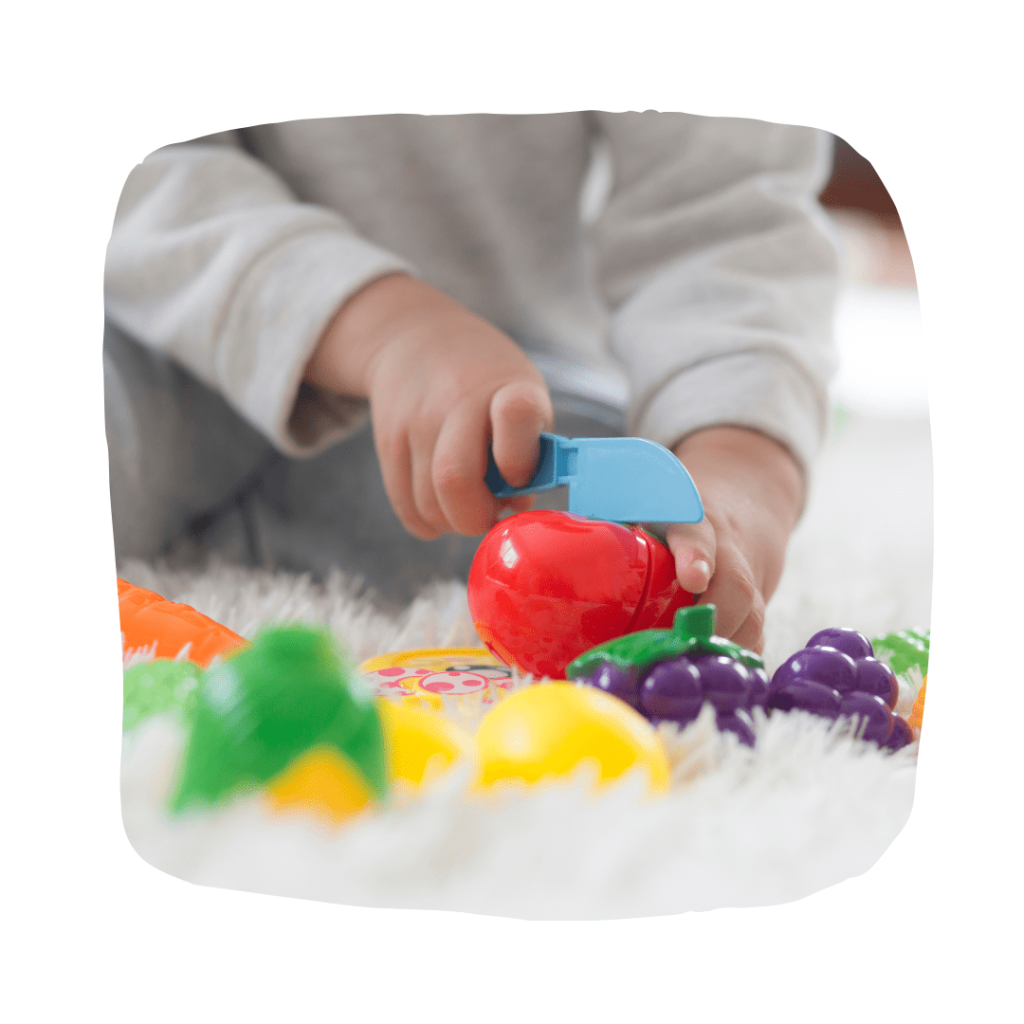
Unlocking intelligence:
- Learning About the World
Through play, children discover the world around them. As toddlers experiment with sand, they learn principles like volume and weight. This hands-on understanding equips them with practical knowledge, making abstract concepts more tangible later in life.
- Problem Solving
Play hones problem-solving skills. When children figure out how to prevent their block tower from falling, they’re not just building a tower; they’re constructing a foundation for analytical thinking and resilience.
- Understanding Cause and Effect
Cause and effect comprehension forms through simple actions, like a baby shaking a rattle. This understanding plays a pivotal role in making informed decisions and predicting outcomes in the future. That is especially useful when teaching them about safety when using pretend tools in the kitchen and around the home.
- Sorting and Sequencing
Play encourages children to sort and sequence objects, setting the groundwork for mathematical concepts. This classification skill is integral for later academic pursuits, from understanding patterns to complex problem-solving.
- Perceptual Skills
Active play develops perceptual skills, crucial for interpreting sensory information and making sense of the world. A blindfolded touch-and-feel game, for instance, refines their tactile perception, essential for tasks like writing or tying shoelaces.
- Language Development
Playing ‘make-believe’ scenarios enriches a child’s vocabulary and conversational abilities, forming the cornerstone for effective communication and comprehension in their later life.
- Listening Skills
Games like “Simon Says” foster active listening skills. These skills are integral for learning in a classroom environment and for effective interpersonal communication.
- Understanding Fantasy vs Reality
Pretend play helps children distinguish between reality and make-believe, cultivating their ability to differentiate between factual information and imaginative ideas – a crucial skill in an era of information overload.
- Storytelling
In pretend play, children’s storytelling abilities blossom. Storytelling promotes creativity, enhances language skills, and helps children express their thoughts and emotions more effectively.
- Critical Thinking
Play nurtures critical thinking. Teaching skills around the kitchen, or cleaning up for instance, requires strategy, anticipation, and adaptability – abilities that are key to decision-making and problem-solving in adulthood.
- Attention Span
Engaging in focused play helps lengthen a child’s attention span, enhancing their ability to concentrate. This skill plays a critical role in academic success and the ability to complete tasks efficiently.
- Memory
Memory games enhance recall skills, which are vital for academic learning and everyday tasks. Remembering the rules of a game also contributes to cognitive flexibility and adaptability.
- Planning Skills
Creating a fort or setting up a pretend picnic requires planning, fostering organizational abilities and foresight – skills that contribute to goal-setting and task management later in life.
- Taking Initiative
When children take the lead in play, they develop initiative, bolstering their confidence and leadership abilities. This sense of autonomy and self-direction are crucial for their personal and professional success in adulthood.
- Early Math and Science
Through play, children encounter early math and science. Pretend cooking can introduce measurement concepts, and outdoor play exposes them to biology and physics. These experiences make complex subjects more accessible and enjoyable as they grow older.
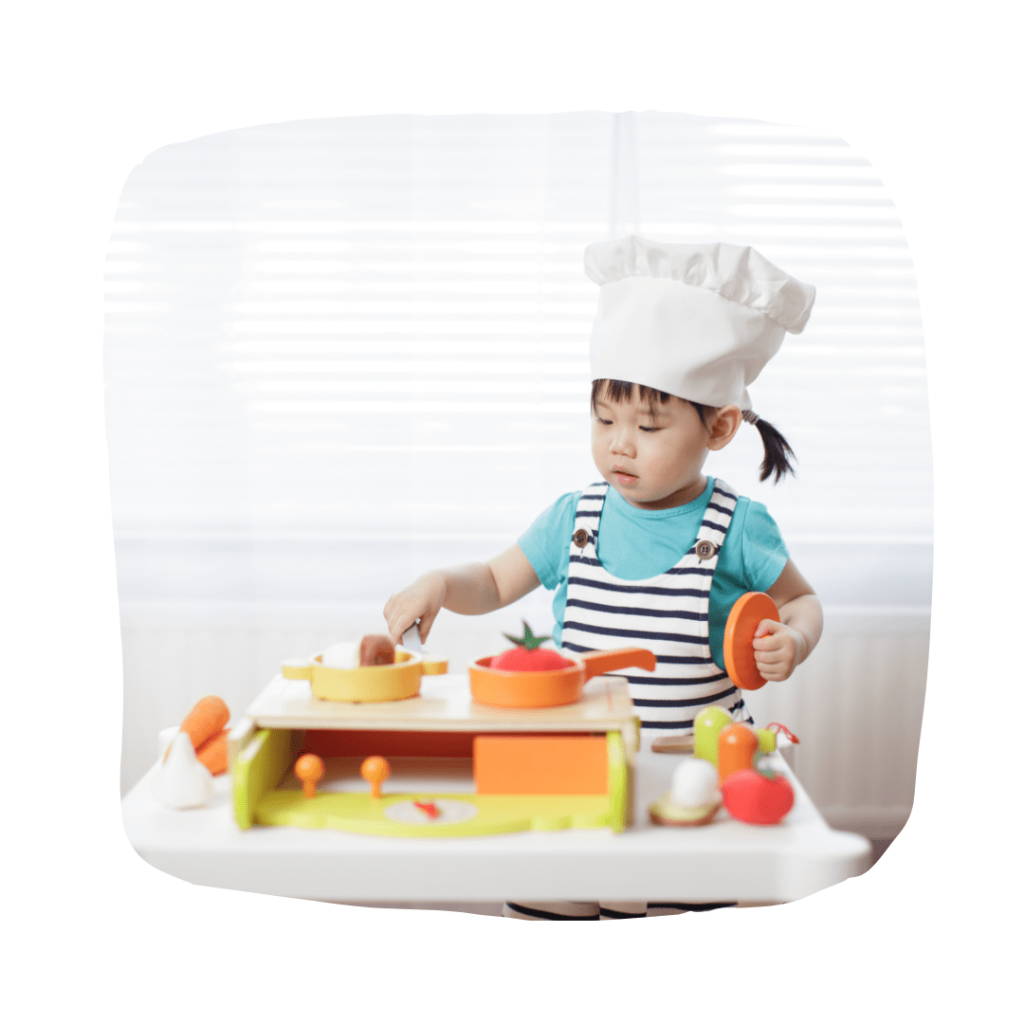
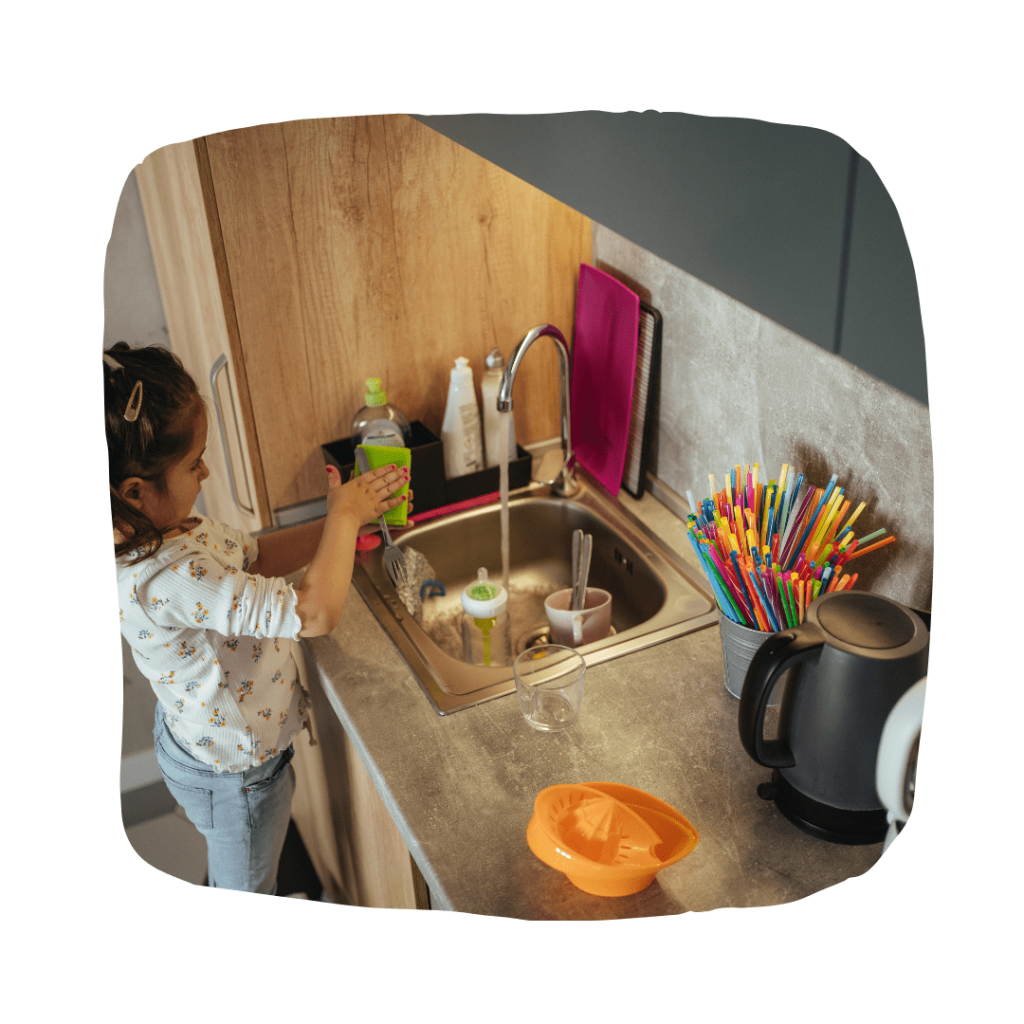

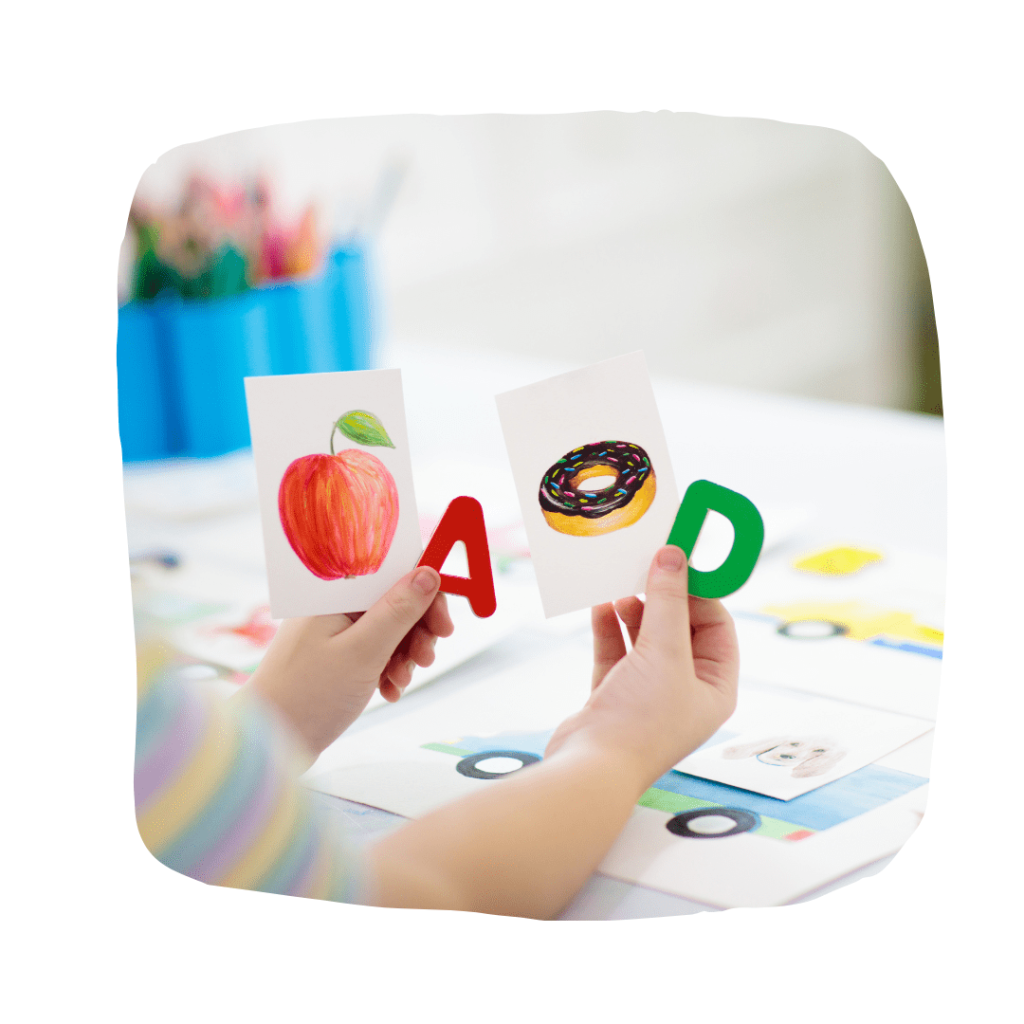
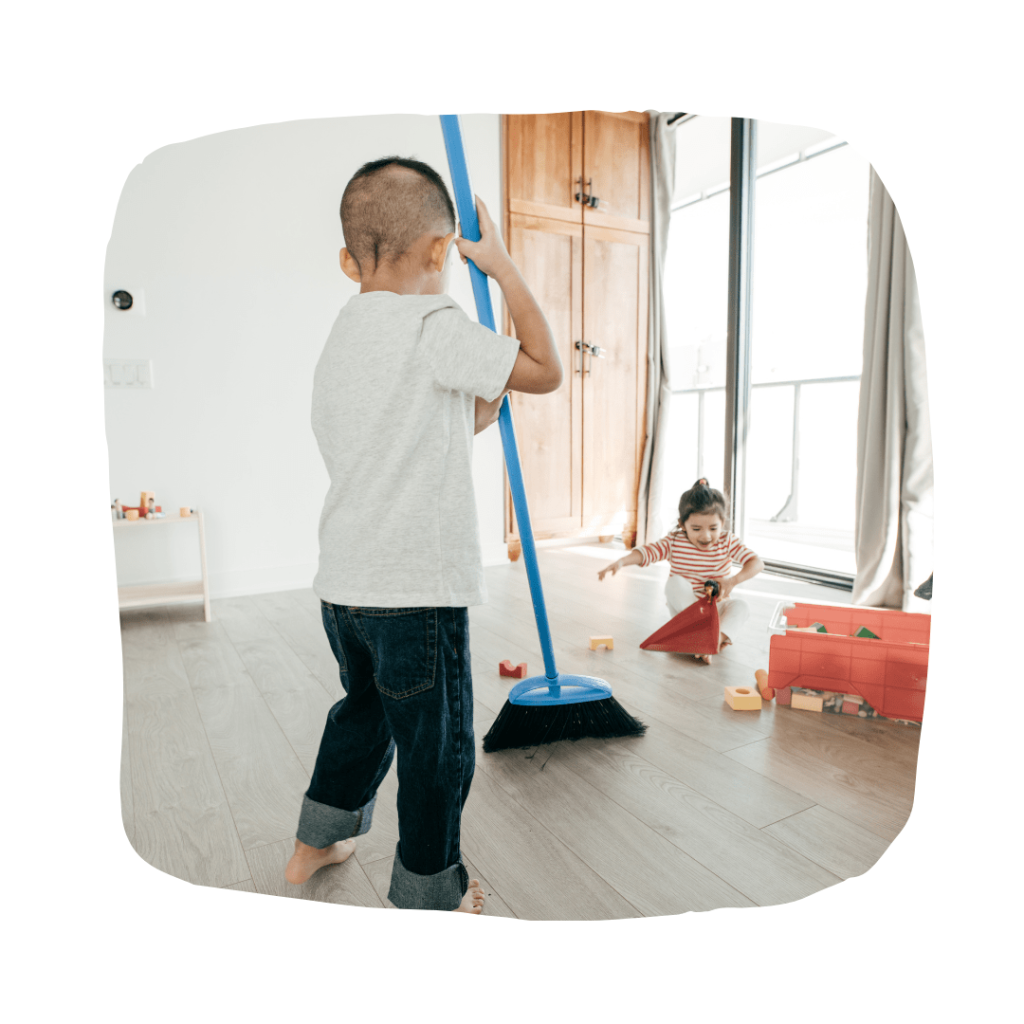
Play is far from idle; it is the fertile ground where cognitive skills take root and grow. Each aspect of play contributes significantly to a child’s development, shaping their understanding. Check out some of our recommendations and review our resources by visiting our Practical Play Guide.
